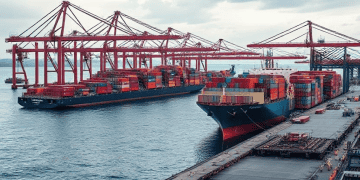Fiji will be subject to a 32% tariff on its exports to the United States following the implementation of US President Donald Trump’s new global reciprocal tariff policy. The policy, announced at the White House on Wednesday, aims to align US tariff rates with those imposed by its trading partners.
In his announcement, President Trump emphasized that the new approach addresses trade deficits, which he described as a national emergency. “Trade deficits are no longer merely an economic problem. They are a national emergency,” Trump stated.
The United States is Fiji’s largest export market, accounting for nearly 32% of the country’s total merchandise exports. Key Fijian exports to the US include bottled water (Fiji Water), gold, textiles, and agricultural products such as kava. In 2023, Fiji exported FJ$267 million worth of bottled water, with FJ$241 million of that amount going to the US.
The new policy introduces tariffs on countries that impose high tariffs on American goods. Fiji currently imposes a 63% tariff on US imports, prompting the US to impose a 32% tariff as part of the new policy, which aims to create a more balanced trade relationship.
Other Pacific nations will also experience changes in their trade relationships with the US. Nauru, Norfolk Island, and Vanuatu will face tariffs of 30%, 29%, and 22%, respectively. Meanwhile, Australia, New Zealand, and Papua New Guinea will see smaller increases, with rates set between 10% and 20%. Several other Pacific nations, including the Marshall Islands, Samoa, Tonga, Solomon Islands, Cook Islands, and Kiribati, will face a 10% tariff, matching the rates they charge on US imports. The US tariff policy shift could have significant implications for Fiji’s two-way trade with the US, valued at $351.2 million in 2022. The change comes as Fiji’s economy continues its recovery from the pandemic and businesses in the country will need to assess how the increased costs could affect their exports to the United States.
Discover in-depth supply chain report news insights at The Supply Chain Report. For international trade tools, see ADAMftd.com.
#FijiExports #USTariffPolicy #TradeTariffs #FijiTrade #USImportPolicy #GlobalTradeImpact #ExportChallenges















